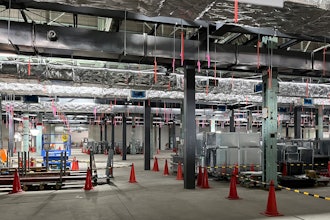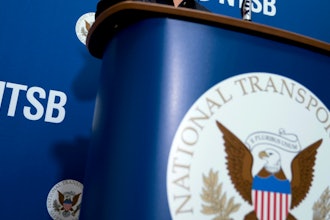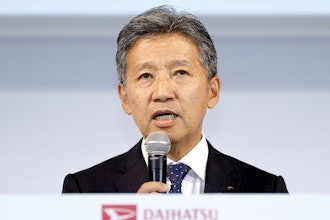Workers at a Lear Corp. plant in northwestern Indiana that makes automotive seats approved an agreement Sunday that will end a two-tiered pay system that left some workers earning much less than others.
The United Auto Workers said in a statement that members of Local 2335 had "overwhelmingly" backed the four-year contract. It did not give a specific vote count. Local 2335 Vice President Hanif Hassan had said earlier that about 760 union members were voting.
Workers at the Hammond plant about 30 miles southeast of Chicago make seats for the Explorer and Taurus models produced at Ford's Chicago Assembly Plant. They went on strike Sept. 13, but returned to work the next day after the tentative deal was reached.
UAW Local 2335 President Jaime Luna said the contract will end a system that locks newer workers into lower wages, and will raise the top wage to $21.58 an hour.
Under the tiered system, Hassan said upper-tier workers could earn nearly $20 an hour while some workers on the lower tier made as low as $11 an hour. Many fast-food workers do not earn much more than the federal minimum wage of $7.25 an hour.
The union's hard-line stance with Lear Corp. in striking to get rid of the second-tier wage could be an indication of how it will handle contract talks next year with General Motors Co., Ford Motor Co. and Fiat Chrysler Automobiles NV.
"The agreement is a victory not just for the workers at our plant, but for thousands of autoworkers across the country who do the same hard work we do and will benefit from the higher standard we achieved by taking a stand in Hammond," Luna said in the statement.
Workers have been pressuring UAW leaders to scrap the lower wage because recently hired factory workers make only about two-thirds of the roughly $28 per hour that longtime UAW members get for doing the same jobs. The two tiers violate a UAW principle of all-in solidarity.
The union agreed to the second tier in 2007 as Detroit automakers were headed into financial trouble, and it allowed expansion of the lower wages in 2009. The lower pay, which then started around $14 per hour, was instrumental in bringing Detroit automakers back from near death during the Great Recession by cutting the automakers' labor costs to make them competitive with U.S. factories run by Asian automakers.
Now, all three automakers are pulling down healthy profits, and many in the union think it's time to end the second tier.
"The UAW has shown that it is willing to do a strike in order to get out of a two-tier wage settlement and have a single tier," said Gary Chaison, a labor relations professor at Clark University in Worcester, Massachusetts. "I think they perceive that as a mess that we got ourselves into; this is a mess were going to get out of."
The union was barred from striking against GM and Chrysler in the 2011 contract talks while the two companies were partly owned by the U.S. government, but that prohibition is over.
Automakers want to keep the second tier wages, or bring down the top tier in order to keep their costs in line. This creates an early disagreement in contract talks that officially start next summer.
Read more about the strike: "Hundreds Of Workers On Strike At Lear Plant"






















